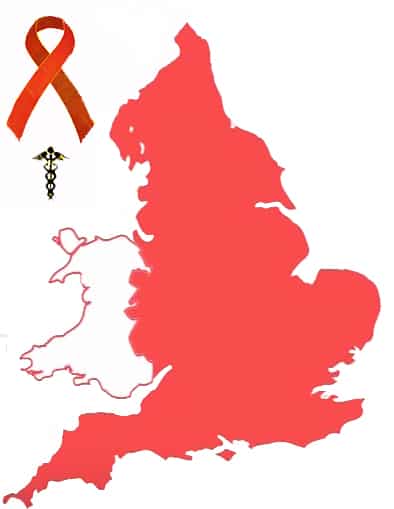
The number of gay men in England who have contracted new HIV infections has fallen by a third since 2015, according to preliminary data presented on Wednesday at the HepHIV conference in Malta.
Reporting from sexual health clinics from across England provided the encouraging figure. Given that gay men in the broader United Kingdom represent roughly half of all new cases, the downturn would suggest significant progress in the British fight against the virus if mirrored elsewhere in the UK. [The following graphic refers to the UK as a whole, but in fact corresponds to English cases only.]
Valerie Delpech: all-clinic slide showing collective decline in gay HIV diagnoses in England last year #HEPHIV2017 pic.twitter.com/31yxXktOGO
— Gus Cairns (@guscairns) February 1, 2017
The drop seems to be attributable to a widespread increase in the use of pre-exposure prophylaxis, or PreP, medicine that helps to prevent HIV infection. The catch? Because the single-payer National Health Service does not currently provide PreP, its users have often had to resort to ordering it online on the gray market, so this expanded usage has come informally rather than directed by health authorities.
Official NHS advice is that this is dangerous. “Medicines purchased in this way could have the wrong active ingredient, no active ingredient, or an incorrect dosage,” says a spokesperson for the UK Medicines and Healthcare products Regulatory Agency. “Prescription medicines are “prescription only” for good reason.”
But many are buying their generics through a website called I Want PrEP Now, which works with NHS clinics to check the drugs are genuine. Doctors also provide the generics users with urine tests, to check the medicine isn't causing kidney damage, as this is a possible side-effect.
[However,] the NHS is currently working out how to make the medicine available as part of a 10,000-person trial in gay and straight people.
The forthcoming change was hard-won in the courts, with the High Court ruling in November 2016 that the NHS was in fact empowered to provide PreP. The NHS had previously argued that it was only responsible for treatment of existing HIV infections, rather than preventive regimes.
Observers also suggest that better education on HIV prevention and the importance of safer sex habits has also probably contributed to the decline in infections. Whichever the cause, LGBT and HIV activists alike have cause to welcome these statistics.



